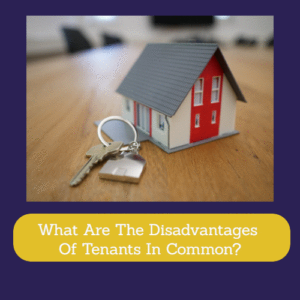 Making an offer on a probate property is fairly common. There are even some upsides compared to buying other properties.
Making an offer on a probate property is fairly common. There are even some upsides compared to buying other properties.
However, there are also some important things to be aware of. Not least, the effect that the probate process can have on things.
To contact a solicitor near you call us on 0845 1391399 or complete a Free Online Enquiry
Here is what you should know about probate property if you are considering making an offer on one:
What Does Probate Mean?
Probate is the legal right to administer the estate of a person who has died. The person who is responsible for applying for probate (and the only person who can normally do so) is someone named as the executor of a will.
It is the executor’s job to carry out the wishes listed in the will. This involves distributing the deceased’s assets (money they owned, personal items, and – most importantly for our purposes – property) to the beneficiaries named in their will. They are also several other vital duties.
If the person who left the will had any debts, they will need to be paid off. Rarely, this may necessitate selling off a property – but only if it is in the interests of the beneficiaries. On other occasions, a will stipulates that a certain property should be sold in a certain way.
But the executor cannot start to properly administer the estate until they have probate. This comes in the form of a legal document called a Grant of Probate. The process of applying for this takes time.
What Is A Probate Property?
The length of time required to successfully apply for probate and receive the grant can run into weeks and months. Eight or even twelve weeks is the average timeframe that’s normally suggested.
During this time, an executor cannot sell any property that is part of the estate in question. They can, however, start taking offers.
“Probate property” is the term used to describe a property that is part of a deceased person’s estate where the Grant of Probate is yet to be acquired. It is on the market and open to offers but it cannot yet be sold.
Can You Make An Offer On A Probate Property?
Yes, you can make an offer on a probate property. Executors can and regularly do put these properties on the market before they are able to actually complete a sale.
This is because part of the process of applying for probate involves getting a property valuation so that the correct inheritance tax can be calculated. It often makes sense to then at least start the sales process.
In many ways, there is little difference between buying a probate property and buying any other. The only difference is that there will definitely be some time before you are legally allowed to buy the property.
Given the potential length of any given conveyancing process, this isn’t always a problem. That said, there are some ways probate properties can differ from the norm.
The Benefits Of Buying A Probate Property
- Can be open to a lower offer – probate properties may previously have been inhabited by an elderly person who could not care for it as they might have liked.
- Might be good renovation projects – for similar reasons, probate properties can require some renovation work.
- Will not be part of a chain – though often keen to complete, the seller is likely to have much more flexibility than others and won’t be in a chain.
What Are The Problems With Buying A Probate Property?
1) Legal Right To Sell
One unusual thing about probate property is that the person selling it is not normally the person who owns it. This can create difficulties.
The executor of an estate is in charge of administering it. This may include selling any property that the will stipulates or potentially that the estate’s finances make clear is in the interests of the beneficiaries.
Sometimes though, beneficiaries do not wish a property to be sold. This disagreement can even go to court in some cases.
You will also always know that the person selling a probate property – by definition – does not have the legal right to sell it just yet. They won’t have it until they receive that Grant of Probate permission document.
2) Potential Delays
The probate process isn’t always a smooth one. It is always worth asking how far through the process the seller is and how likely it is for issues to be raised. The estate agent may know – or you might be able to get your solicitor to find out for you.
On your side, it’s wise to consider whether you have other people (for example, in a chain) waiting on you to make this purchase.
If there is a problem with the seller getting their Grant of Probate, will everyone else on the chain be happy to wait? Probably not.
3) Possible Lack Of Information
Because the seller of a probate property is not the owner, they may not have as much information about the property to hand.
This means they might not be able to complete the Property Information and Fittings and Contents forms as completely as you might like. This makes it doubly worthwhile getting your own survey done and confirming your conveyancing solicitor will complete extensive searches.
Do Probate Properties Sell For Less?
Possibly. But only because they can be older properties that may benefit from some renovation work.
The executor is required to sell the property at a fair market value. They’re actually potentially liable for the difference if it isn’t, so don’t expect discounts on probate properties for anything other than things the market would usually price accordingly.
Making An Offer On A Probate Property
Making an offer on probate property can be a great idea. But it’s something you should always do with care – and with expert legal advice on your side.
Get In Touch Today
Let us know a little about your situation on 0845 1391399 or by completing a Free Online Enquiry today and we can connect you with a legal specialist who can give you the kind of advice you’re looking for.

 Expert Deed Of Variation Solicitors
Expert Deed Of Variation Solicitors Care home fees can be much higher than many people expect. Understandably, this means there is often a desire to minimise those costs. The way owning property as tenants in common and care home fees works can be a very beneficial interaction to understand.
Care home fees can be much higher than many people expect. Understandably, this means there is often a desire to minimise those costs. The way owning property as tenants in common and care home fees works can be a very beneficial interaction to understand. Tenants in common is one of the ways that many people in the UK choose to buy property together. It’s often perceived to be a better solution than being joint tenants, but it’s not perfect. So, what are the disadvantages of tenants in common?
Tenants in common is one of the ways that many people in the UK choose to buy property together. It’s often perceived to be a better solution than being joint tenants, but it’s not perfect. So, what are the disadvantages of tenants in common? Can I sign my house over to my daughter in the UK? Yes, you can sign your house over to your daughter in the UK. Many people gift their home or other property they own to their children. You might want to minimise Inheritance Tax or help get them onto the property ladder.
Can I sign my house over to my daughter in the UK? Yes, you can sign your house over to your daughter in the UK. Many people gift their home or other property they own to their children. You might want to minimise Inheritance Tax or help get them onto the property ladder.